- Home›
- Healthy Living›
- Top 11 Health Benefits Of Broccoli
Top 11 Health Benefits Of Broccoli
By: Priyanka Maheshwari Thu, 19 Nov 2020 3:50:27
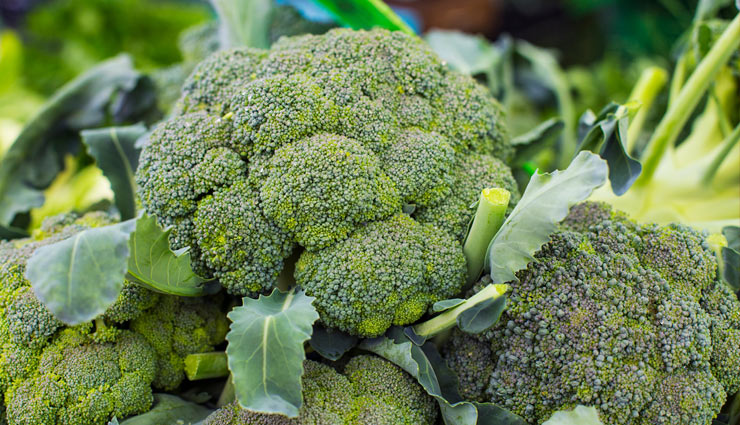
When we think about green vegetables to include in our diet, broccoli is one of the foremost veggies to come to our mind. Broccoli is known to be a hearty and tasty vegetable which is rich in dozens of nutrients. It is said to pack the most nutritional punch of any vegetable. Broccoli closely related to cabbage, Brussels sprouts, kale and cauliflower — all edible plants collectively referred to as cruciferous vegetables.
There are three main varieties of broccoli:
- Calabrese broccoli
- Sprouting broccoli
- Purple cauliflower — despite its name a type of broccoli
Broccoli is high in water and low in calories. So you can eat about as much as you want and keep your calorie count in check. For example, 1 cup of chopped broccoli has about 31 calories, 81 grams (g) of water, and 2.4 g of fiber. Broccoli is also an excellent source of vitamins and minerals. 1 cup of chopped broccoli contains about 43 milligrams (mg) of calcium (4.3 percent of the recommended daily value, or DV), 288 mg of potassium (6.1 percent DV), 81 mg of vitamin C (90 percent DV for men and more than 100 percent DV for women), 92 micrograms of vitamin K (115 percent DV), and 567 international units of vitamin A (about 11 percent DV).
Here are the top 11 health benefits of broccoli.
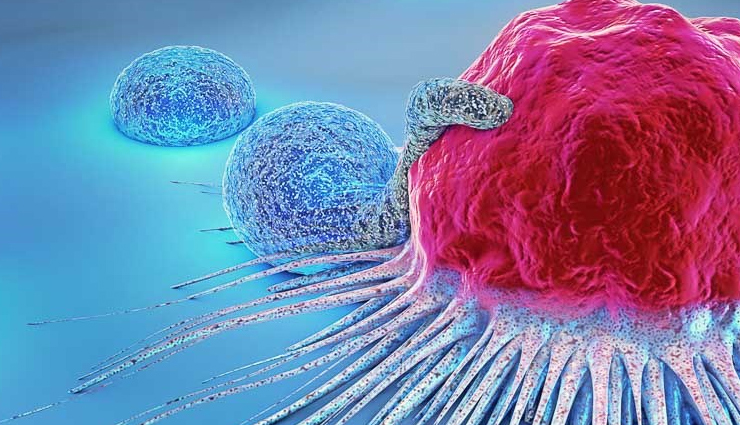
Fights Cancer
Leafy vegetables are known to hold cancer-fighting properties. From the spinach to cabbage and cauliflower, these veggies have proven to be effective in maintaining a good health and warding off certain serious illnesses. Similarly, broccoli too doesn’t lag when it comes to nourishing one’s health. It efficiently cuts down the count of estrogens in the body which are known to cause cancer, especially that of the breast and uterus.

Strengthens Your Bones
Vitamin K helps your body absorb calcium, and a deficiency increases the risk of bone fractures. Due to the high amount of vitamin K in broccoli, eating more of this vegetable can strengthen your bones. Broccoli also contains calcium, which is another essential nutrient for strong bones and teeth.
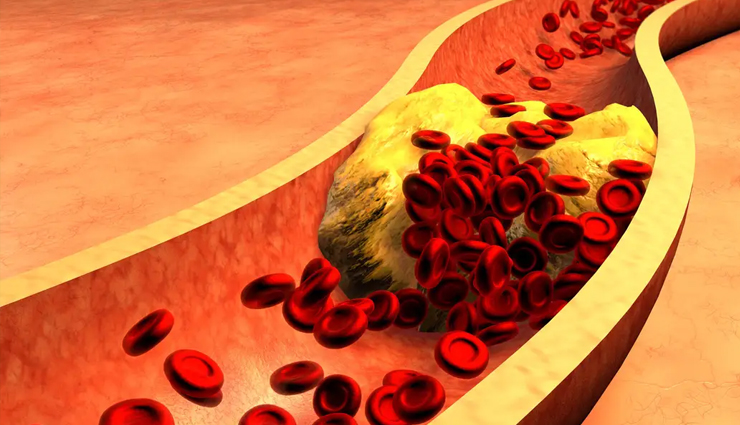
Controls Cholesterol
A majority of individuals follow an extremely unhealthy lifestyle. Staying up till late in the night, excess consumption of fast food and an added amount of work pressure causes an imbalance in the body’s system. Blood pressure, diabetes, obesity are all results of an unsuitable lifestyle. Eating healthy is always a key ingredient in achieving health and fitness perfection. The soluble fibers present in broccoli help in drawing out cholesterol from your body which in-turn lead to better digestion as the bile in your system gets combined with the fibers.
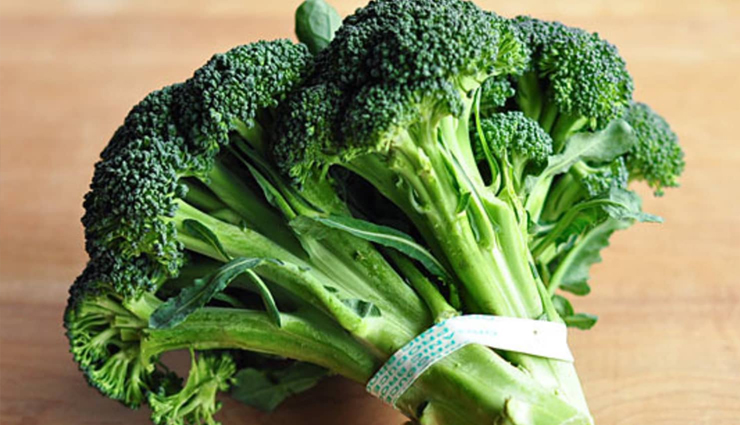
Powerful Antioxidant
Rich in antioxidants, broccoli aids in getting rid of several toxins from your body. It offers a generous amount of Vitamin C that enhances the body’s immunity system. The flavonoids ensure a smooth recycling of the vitamin C. Intrinsically enriching, the broccoli also offers carotenoids, lutein, zeaxanthin, beta-carotene and other power packed antioxidants which prove to be extremely nourishing to your body.

Aids In Effective Weight-Loss
High in fiber and carbohydrate content, the broccoli prevents indigestion and constipation. It keeps a track of the sugar levels in the body and refrains the body from causing excess hamful reactions of the food consumed and the acids present within the body. All these result to an effective weight-loss. It is one of the most ideal component to imbibe in your diet and add to your list of greens and salad components. Vegetarians fall short of certain proteins that are derived from the consumption of meat. Broccoli fills in the gap here as it is protein-rich in nature and vegetarians can avail themselves of its benefits.
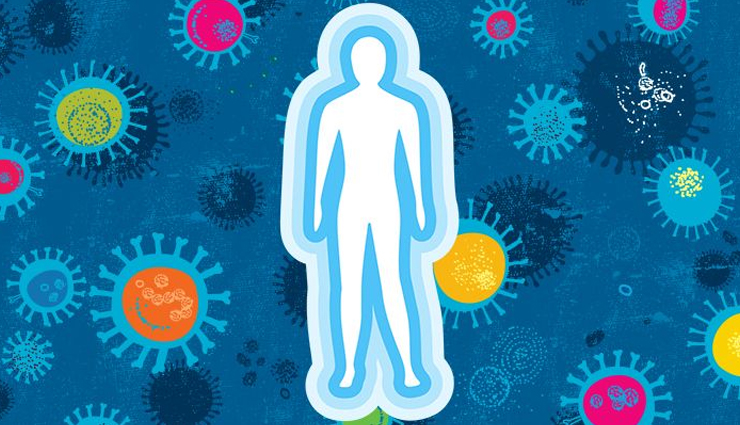
Improves Immunity
If you’re looking to strengthen your immune system, broccoli is the vegetable for the job. The vitamin C in this flowering plant may give your body the boost it needs to fight off infections. As a bonus, vitamin C helps detoxify the body and removes free radicals that can lead to arthritis, wrinkles, and age-related macular degeneration.

Reduced Inflammation
Broccoli contains various bioactive compounds that have been shown to reduce inflammation in your body’s tissues. It’s theorized that multiple compounds work synergistically to support this effect, though some seem to work individually as well. Kaempferol, a flavonoid in broccoli, demonstrates strong anti-inflammatory capacity in both animal and test-tube studies. A small human study in tobacco smokers also revealed that eating broccoli led to a significant reduction in markers of inflammation. While these results are promising, more research is needed to better understand how broccoli consumption affects inflammation in humans.
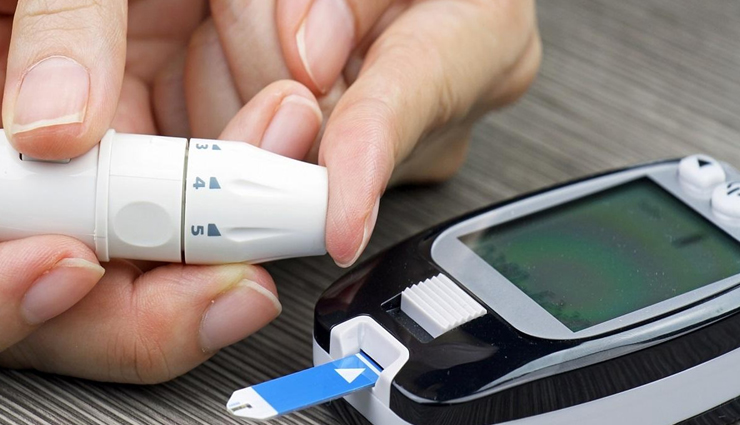
Blood Sugar Control
Eating broccoli may support better blood sugar control in people with diabetes. Although the exact mechanism is unknown, it may be related to broccoli’s antioxidant content. Broccoli is also a good source of fiber. Some research indicates that higher intake of dietary fiber is associated with lower blood sugar and improved diabetic control.

Health Heart
A study in mice fed broccoli sprouts revealed a potentially protective effect against cell death and oxidative stress in heart tissue following a cardiac arrest. Additionally, higher intake of fiber-rich foods like broccoli is associated with a reduced risk of heart disease.

Healthy Digestion
As we all know that Broccoli is rich in fiber and antioxidants. So it support healthy bowel function and digestive health. Bowel regularity and a strong community of healthy bacteria within your colon are two vital components to digestive health. Eating fiber- and antioxidant-rich foods like broccoli may play a role in maintaining healthy gut function.

Healthy Immune System
Vitamin C is arguably the most essential nutrient for immune function — and broccoli is loaded with it. Research indicates that vitamin C plays a role in both the prevention and treatment of various illnesses. A daily intake of 100–200 mg of vitamin C seems to be sufficient to prevent certain infections. Typically, vitamin C is associated with oranges or strawberries, but broccoli definitely deserves credit — a half-cup (78-gram) serving of cooked broccoli boasts 84% of the RDI for this vitamin.





